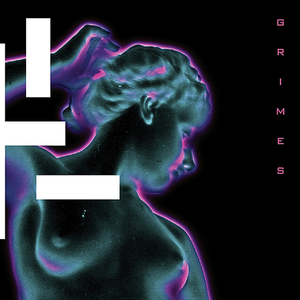Related Research Articles

Godspeed You! Black Emperor is a Canadian post-rock band which originated in Montreal, Quebec in 1994. The group releases recordings through Constellation, an independent record label also located in Montreal. After the release of their debut album, F♯ A♯ ∞, in 1997, the group toured regularly from 1998 to 2003. Their second album, 2000's Lift Your Skinny Fists Like Antennas to Heaven, received critical acclaim and has been named as one of the best albums of the decade. This was followed by 2002's Yanqui U.X.O. In 2003, the band went on hiatus in order for members to pursue other musical interests. In the intervening period, the group was occasionally rumored to have broken up, but finally reconvened in 2010. Since reforming, they have released four more albums: 'Allelujah! Don't Bend! Ascend! (2012), which won the 2013 Polaris Music Prize; Asunder, Sweet and Other Distress (2015); Luciferian Towers (2017); and G_d's Pee at State's End! (2021).
UK rap, also known as British hip hop or UK hip hop, is a genre of music, and a culture that covers a variety of styles of hip hop music made in the United Kingdom. It is generally classified as one of a number of styles of R&B/Hip-Hop. British hip hop can also be referred to as Brit-hop, a term coined and popularised mainly by British Vogue magazine and the BBC. British hip hop was originally influenced by the dub/toasting introduced to the United Kingdom by Jamaican migrants in the 1950s–70s, who eventually developed uniquely influenced rapping in order to match the rhythm of the ever-increasing pace and aggression of Jamaican-influenced dub in the UK. Toasting and soundsystem cultures were also influential in genres outside of hip hop that still included rapping – such as grime, jungle, and UK garage.
An independent music scene is a localized independent music-oriented community of bands and their audiences. Local scenes can play a key role in musical history and lead to the development of influential genres; for example, no wave from New York City, Madchester from Manchester, and grunge from Seattle.

The Polaris Music Prize is a music award annually given to the best full-length Canadian album based on artistic merit, regardless of genre, sales, or record label. The award was established in 2006 with a $20,000 cash prize; the prize was increased to $30,000 for the 2011 award. In May 2015, the Polaris Music Prize was increased to $50,000, an additional $20,000, sponsored by Slaight Music. Additionally, second place prizes for the nine other acts on the Short List increased from $2,000 to $3,000. Polaris officials also announced The Slaight Family Polaris Heritage Prize, an award that "will annually honour five albums from the five decades before Polaris launched in 2006." Details about the selection process for this prize are still to be revealed.

DIY is a United Kingdom-based music publication, in print and online. Its free print edition is released monthly with a physical circulation of 40,000 in UK venues, clubs and shops.

Claire Elise Boucher, known professionally as Grimes, is a Canadian musician, singer, songwriter, and record producer. Her early work has been described as extending from "lo-fi R&B" to futuristic dance-pop, and has incorporated influences from electronic music, hip hop, and rock. Her lyrics often touch on science fiction and feminist themes. She has released five studio albums.

Arbutus Records is a Montreal based record label and management company founded by Sebastian Cowan in 2009. The label is named after the street by the same name in Vancouver, where Cowan grew up. The label have also begun expanding outside of Montreal, signing international artist Σtella, from Athens, Greece, on April 16, 2019, and Toronto-based trio Rapport on August 28, 2019.

Halfaxa is the second studio album by Canadian electronic music artist Grimes. It was released in Canada on October 5, 2010, by Arbutus Records, and in the United Kingdom and mainland Europe in May 2011 by Lo Recordings.

Visions is the third studio album by Canadian musician Grimes. It was released on January 31, 2012, through 4AD. Her first since signing with 4AD, the album was recorded entirely on Apple's GarageBand software in Grimes' apartment over a three-week period. It was mixed by Grimes and her manager, Sebastian Cowan, at their La Brique Studio Space in Montreal. Visions was streamed on the NPR website a week before it was released in the United States.
Seapunk is a subculture that originated on Tumblr in 2011. It is associated with an aquatic-themed style of fashion, 3D net art, iconography, and allusions to popular culture of the 1990s. The advent of seapunk also spawned its own electronic music microgenre, featuring elements of Southern hip hop and pop music and R&B music of the 1990s. Seapunk gained limited popularity as it spread through the Internet, although it was said to have developed a Chicago club scene.
Tops is a Canadian indie rock band from Montreal, Quebec, which currently consists of Jane Penny, David Carriere, Riley Fleck, and Marta Cikojevic. They were formed in 2011 following the disbandment of synthpop group Silly Kissers, of which Carriere, Penny, and Gillies were members, along with Arbutus Records recording artist Sean Nicholas Savage. TOPS are prominent within the Arbutus Records and Canadian indie music scenes. Their debut album, Tender Opposites, was released on February 28, 2012, in Canada and the United States, and October 1, 2012, in the rest of the world, to generally positive reviews. The album was named the eighth best album of 2012 by Gorilla vs. Bear. Their second studio album, Picture You Staring, was released in 2014 on Arbutus Records and featured artwork from LA-based artist Jessica Dean Harrison.
Lab Synthèse was an arts collective and venue space in Montreal, Quebec during the late 2000s. It was located at 435 Beaubien Ouest.

PC Music is a record label and art collective based in London and run by producer A. G. Cook. It was founded in 2013, uploading its first releases to SoundCloud that year. Artists on its roster have included Hannah Diamond, GFOTY, Danny L Harle, EASYFUN, Namasenda, and Planet 1999. The label's releases have been showcased on the compilations PC Music Volume 1 (2015), Volume 2 (2016), and Volume 3 (2022).
Upset The Rhythm is an independent record label based in London with a varied roster of leftfield artists and bands; they also operate as a diverse DIY live music promoter. Huw Stephens featured Upset The Rhythm as "purveyors of interesting indie" on his BBC Radio 1 show as part of his ongoing 'Label Of Love' feature. As of 2015, Upset The Rhythm had 85 releases.

Deep in the Iris is the third studio album by Canadian experimental pop/art rock band Braids. It was released by Arbutus Records worldwide, excluding Canada where it was released by Flemish Eye, on 28 April 2015. It has been described as the band's "sunniest and most immediate record".

Canadian singer and songwriter Grimes has released five studio albums, one remix album, one DJ mix, three extended plays (EPs), thirteen singles, four promotional singles and twenty-one music videos. Born and raised in Vancouver, Grimes began recording experimental music while attending McGill University in Montréal, where she became involved with the underground music scene.
Moon King is the synth-pop project of Canadian songwriter and producer Daniel Benjamin.
Doldrums is the musical identity of Canadian singer, producer and visual artist Airick Asher Woodhead. Doldrums began in 2010 as a moniker to release home recordings before expanding into a live band and releasing three LPs: Lesser Evil (2013) on Arbutus Records, The Air Conditioned Nightmare (2015) on Sub Pop records, and Esc (2017) on Endless.
Since the mid-2000s, a counterculture has taken place where numerous netlabels, online labels that release their music for free, located in Japan have been formed and garnered a huge amount of publicity which, according to writer Patrick St. Michel, has shaped how popular Japanese music is produced. Japan's netlabel phenomenon was the first time in the history of the nation's music industry where underground musicians could produce their works however they wanted to and have their music noticed by the public; this is an aspect that was previously absent at a time when major labels in the country followed a conservative method where they managed how artists would produce their music. Starting in the 2010s, the netlabel scene has crossed over to the mainstream music landscape and all across the world, with netlabel producers transitioning into working for bigger labels and western producers like Cashmere Cat and Ryan Hemsworth being influenced by the music of Japanese netlabels.
All Hands_Make Light is a Canadian experimental noise-pop duo, consisting of singer Ariel Engle and instrumentalist Efrim Menuck.
References
- 1 2 3 Trapunski, Richard (September 19, 2012). "The New Weird Canada: exploring the emerging music underground". Aux.tv. Retrieved November 25, 2016.
- 1 2 3 4 5 6 Edwards, Samantha (October 8, 2013). "Loft Envy: How Montreal’s DIY Pop Scene Outgrew Itself". Chart Attack . Channel Zero. Retrieved November 25, 2016.
- 1 2 3 4 5 6 7 8 9 10 11 Olbrich, Suze (July 10, 2013). "The Warehouse Pop of Arbutus Records". Dazed . Retrieved November 23, 2016.
- 1 2 3 4 5 6 7 Noel, Alyssa (June 12, 2012). "Burning Down the Loft: Inside Montreal’s DIY Scene". Spin . Retrieved November 25, 2016.
- ↑ "Reviews for Visions by Grimes". Metacritic. CBS Interactive . Retrieved November 26, 2016.
- ↑ "The 2012 Polaris Music Prize Short List Nominees". Polaris Music Prize . Retrieved November 26, 2016.
- ↑ Stevenson, Jane (April 21, 2013). "Carly Rae Jepsen dominates Juno Awards". Toronto Sun . Sun Media . Retrieved November 26, 2016.
- ↑ Catchlove, Lucinda (September 28, 2016). "How the Godspeed Generation Made Montréal the Center of the Indie Rock Universe". Red Bull Music Academy. Retrieved November 25, 2016.
- ↑ Giulione, Bianca (August 2, 2016). "City Guide: Montréal's DIY Art And After-Hours Underground". Electronic Beats. Retrieved November 25, 2016.
- ↑ Beaumont-Thomas, Ben (March 22, 2013). "Blue Hawaii, Majical Cloudz, Purity Ring: it's a Grimes scene investigation". The Guardian . Guardian Media Group. Retrieved November 26, 2016.
- ↑ Sproull, Lisa (June 4, 2016). "Making Space in Montreal’s music scene". Cult MTL . Retrieved November 25, 2016.